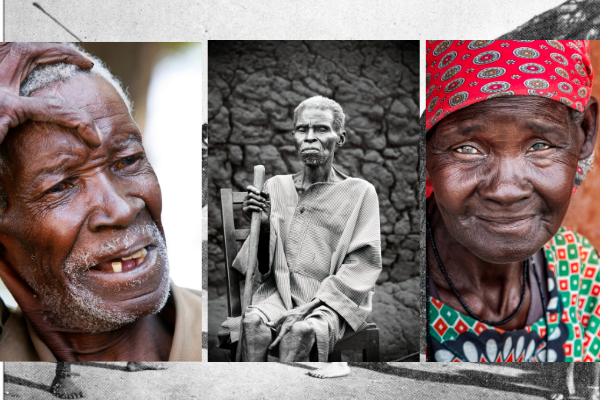
Your Age Is Defined by Your Lifestyle!
- Category: Gender
- Date 20-08-2006
- 497 views
This year alone, some of the world’s notable personalities celebrated their “youthful old age” with pomp. Among them was Queen Elizabeth of Britain who turned eighty in April, president Robert Mugabe of Zimbabwe who turned eighty-two in May, retired president Nelson Mandela of South Africa who turned eighty-four in July, and Fidel Castro of Cuba who turned eighty this August, even as he lay on a surgeon’s table for an operation.
They are old fellows indeed but their manners would not abide by their agedness. Whereas many of her birthday guests wobbled and stuck to armchairs, Queen Elizabeth walked about, acknowledging cheers from supporters; whereas Nelson Mandela amused himself with toddlers. As for Robert Mugabe and Fidel Castro, their sharp oratory and expressive gestures were quite undiminished - Castro’s last public speech was a week before his birthday.
We may look around a neighbouring slum or village for the people who were born eighty or so years ago to get some interesting revelations. A great majority of Elizabeth’s, Mandela’s, Mugabe’s and Castro’s age mates might be blind, toothless, crippled, generally disfigured, but mostly dead! Why? Many of them might have been let down by their social status.
It is said that people grow very old because of their social and economical status, which influences their lifestyle. Research reveals that the factors that make a person grow old very fast mainly depend one’s status in society. People of low social status are prone to risks of poor health, rapid physical depreciation and early death.
One can therefore take control of his process of growth by crossing over to a higher social class, thereby earning a decent standard of living. Social status (a person’s position in society) can be achieved through personal skills, abilities, and efforts, say by studying hard to become a lawyer, investing to become rich or taking up a challenging leadership position. A high social class brings power and privileges to an individual, and thus his opinions, ways of thinking, values, needs, and feelings tend to improve.
On the other hand, low status people face hardships of doing backbreaking jobs, whereby the effort applied to doing the work is generally disproportionate to the ultimate rewards. There is an imbalance in effort-reward relationship. This creates a situation of insufficiency, which in turn causes psychological stress to an individual because of having lots of areas you cannot control in your life. It thus slumps a person’s self-esteem, lowers his cheerfulness and devastates life.
It has been suggested that people in the highest social classes can have an advantage of about seven biological years over their age mates at the extreme end of the social class. High-class people are not prone to health hazards and sudden age-related diseases, which intensify the ageing process. But low social class-related stress makes individuals look rather older than they may be. The stress of caring for a sick child could add ten or more years to the biological age of a woman's cells.
A team of British and American researchers have analysed key pieces of DNA (genetic material) called telomeres, which are thought to correlate to biological age. Telomeres are tiny mechanisms within the body's cells, which give shape to the ageing process. It is held that the length of a telomere controls the number of times a cell can divide and they get shorter each time a human cell duplicates.
Scientifically speaking, telomeres are strips of DNA at the end of chromosomes, which stabilise and protect chromosome endings from damage. However, they shorten each time a cell divides, until there is nothing left, making cell division less reliable and increasing the risk of age-related disorders, caused by stress.
I hope this answers the suspicious mbongo who had doubted that Peering Eye is in fact twenty years younger than President Kikwete! JK looks young because he is President; you look old because you are a small fry!
By Venansio Ahabwe
Source: Peering Eye, Sunday Citizen
